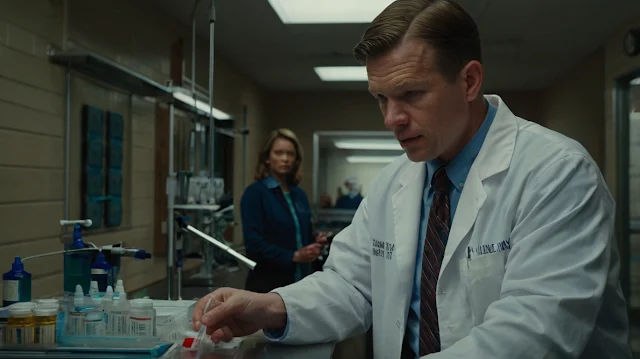Vaccines have long been in the spotlight of public health debates, but misinformation surrounding them continues to be a pivotal challenge. Senator Markwayne Mullin’s recent claims about the lack of direct studies on vaccines and autism have reignited a contentious topic, potentially undermining public confidence in vaccine safety. This blog explores the inaccuracies behind the senator’s statement, its implications for public health, and the pivotal role of health advocates in dispelling harmful narratives.
Understanding Sen. Mullin’s Vaccine Testing Claim
During a recent interview on NBC’s “Meet the Press,” Sen. Mullin suggested that vaccines might cause autism because “there’s not been a direct study on each individual vaccine.” While acknowledging that some vaccines have been studied, he implied that the absence of exhaustive, individualized studies left room for doubt.
This argument follows a familiar anti-vaccine rhetoric, tapping into long-debunked claims that leverage selective gaps in research. Although Mullin presented his query as a call for scrutiny, such statements are misleading. Health experts have dispelled these associations repeatedly, using a robust body of scientific evidence.
The Evidence Against Mullin’s Claims
Sen. Mullin's statement misrepresents several key facts:
- Extensive Research Exists: Large-scale studies have thoroughly investigated vaccines, particularly the MMR (measles, mumps, and rubella) vaccine and ingredients such as thimerosal. None have found credible links between vaccines and autism.
- Autism Origins: Scientific literature indicates that autism begins developing in early fetal stages, long before a child is exposed to vaccines. Genetics, not vaccines, largely drive this condition.
- Monitoring and Surveillance: All vaccines undergo rigorous pre- and post-market safety evaluations. Ongoing safety surveillance systems such as VAERS (Vaccine Adverse Event Reporting System) ensure monitoring for rare, unexpected side effects.
By focusing on the impossibility of testing "each vaccine for all things," Mullin’s argument undermines the evidence-based processes in place while promoting a “what if” narrative that fuels baseless fears.
The Role of Public Health Advocates in Countering Misinformation
Public health advocates are on the frontlines of combatting vaccine misinformation, and their work has never been more crucial. Misinformation impacts vaccination rates, erodes trust in science, and contributes to the re-emergence of preventable diseases...
How Public Health Advocates Can Respond
- Provide Accurate Information
Explain the rigorous processes behind vaccine development. Highlight the fact that vaccines are tested extensively for safety and efficacy during clinical trials and continuously monitored post-approval.
- Leverage Credible Voices
Amplify voices from trusted medical professionals and scientists to counteract the spread of misinformation. Highlight data from organizations such as the CDC, WHO, and peer-reviewed journals.
- Empower Communities
Work with communities to understand their specific concerns about vaccines, addressing them with empathy and tailored messages.
- Utilize Digital Platforms
Counter misinformation where it lives—on social media. Share infographics, videos, and personal stories that resonate with different demographics.
- Engage Policymakers
Advocate for fact-checking and evidence-based communication in public health discourse. Politicians and thought leaders must understand the weight of their words on public perception.
Consequences of Spreading Misleading Vaccine Claims
Misinformed statements like Mullin’s can have far-reaching effects, shaping public opinion and influencing behavior. Here are three critical consequences of spreading vaccine misinformation:
- Vaccination Hesitancy
Fear and confusion stemming from unfounded claims can lead individuals to delay or avoid vaccination, putting entire communities at risk. Herd immunity, essential for protecting the most vulnerable members of society, can erode quickly. For example, misinformation about the MMR vaccine caused sharp declines in its uptake in the UK and subsequent measles outbreaks.
- Erosion of Public Trust
Repeated exposure to misleading information can diminish trust in public health institutions and scientific research. This lack of trust can make it harder to combat future health crises, such as pandemics.
- Economic and Social Costs
Dealing with outbreaks of preventable diseases requires significant resources—both financially and in terms of healthcare capacity. Societal productivity also suffers as preventable illnesses force people to stay home from work or school.
Enhancing Public Understanding of Vaccine Testing
To rebalance the conversation, it’s vital to educate the public about the rigorous processes behind vaccine development:
How Vaccines Are Tested
- Preclinical Research
Vaccines begin with laboratory and animal testing to evaluate initial safety and efficacy.
- Clinical Trials
Human testing occurs in three phases, with each phase scaling up in participant numbers to assess safety, dosing, and efficacy.
- Regulatory Approval
Agencies like the FDA and EMA review clinical trial data exhaustively before allowing a vaccine to be marketed.
- Post-Market Monitoring
Continuous monitoring identifies rare side effects that may not have appeared in trials. Systems like VAERS allow for rapid responses to new safety concerns.
By pulling back the curtain on these stringent steps, we can foster greater public appreciation for the safety and reliability of vaccines.
Accessing Reliable Information
Public health advocates should direct individuals to trustworthy sources of vaccine information. Websites like the CDC, WHO, and scientific journals provide up-to-date, evidence-based insights. Organizations like the Children's Hospital of Philadelphia (CHOP) host accessible and thorough resources on common vaccine concerns.
Moving Forward Together
The fight against misinformation is a shared responsibility. By staying informed and proactive, public health advocates can play a significant role in preserving trust in vaccines and encouraging their widespread uptake. Misinformation like Sen. Mullin’s statements can be harmful, but the collective effort of advocates can counter its effects.
Public health is a team endeavor—and we need every voice to amplify the truth about vaccines. The science is clear, robust, and thoroughly tested. It’s time for advocates to continue championing these facts to safeguard our communities and future.







.jpg)
0 Comments